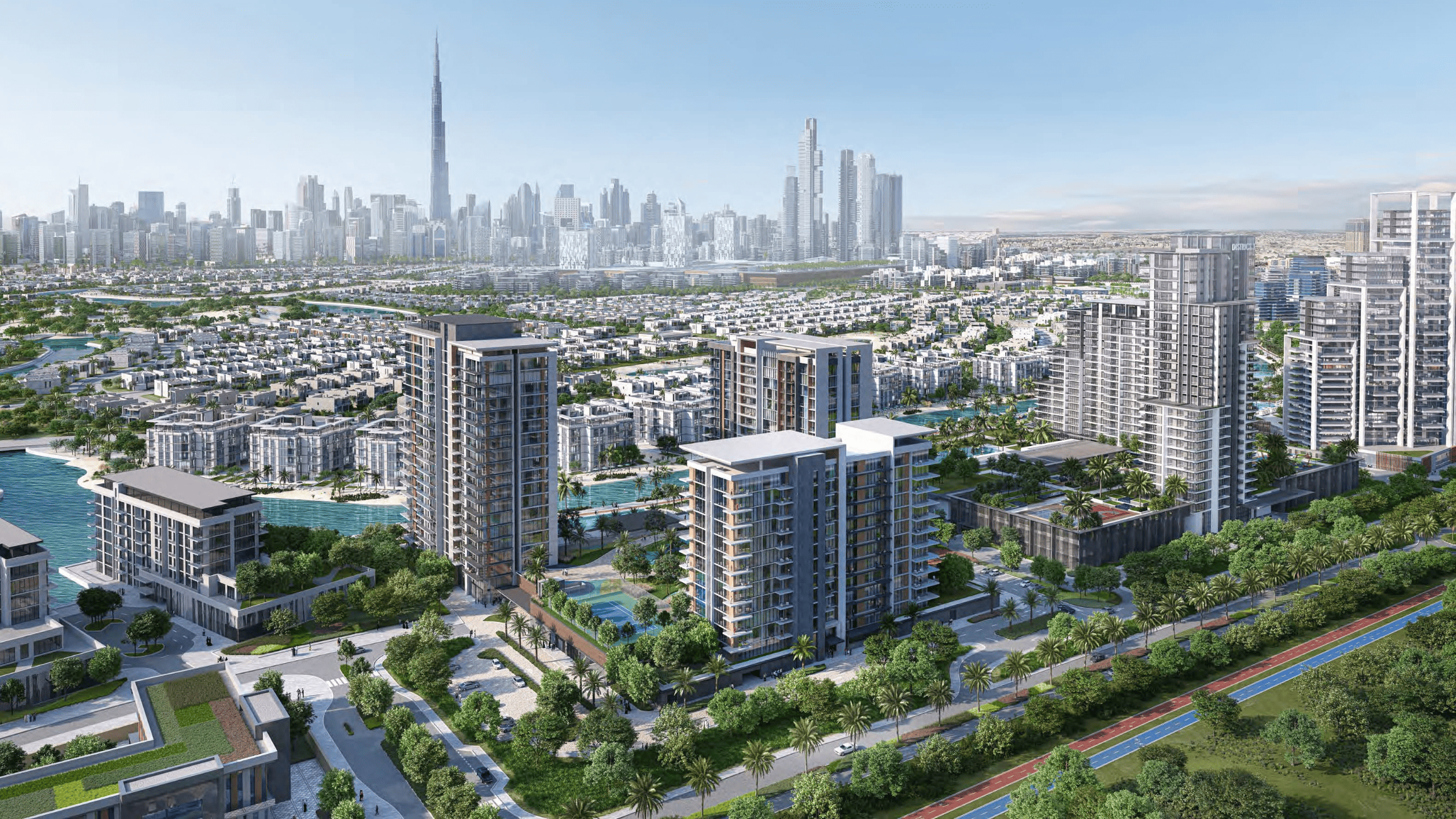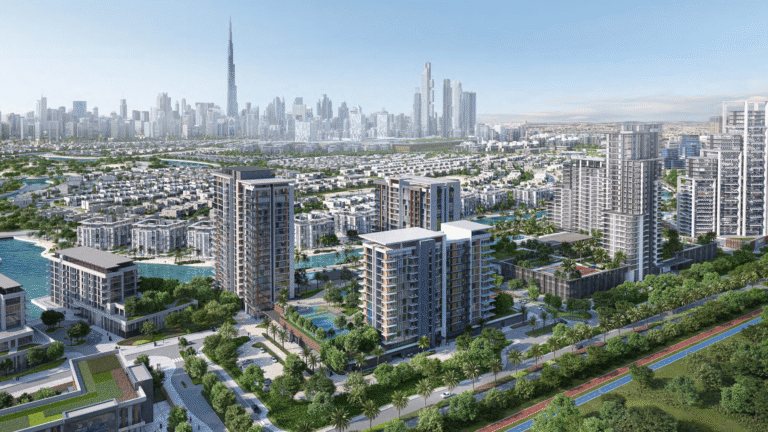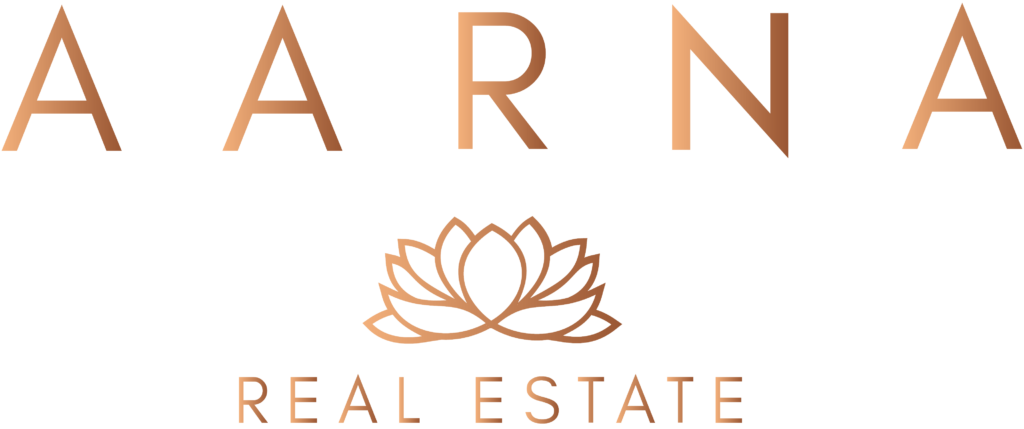Trump’s 2025 Tariffs Are Reshaping Global Investment Behavior — Why UAE Real Estate Is Emerging as a Prime Safe Haven
In April 2025, President Donald Trump announced a sweeping tariff policy: a blanket 10% tax on all imports into the U.S., alongside targeted duties of 34% on Chinese goods, 24% on Japanese imports, and 20% on goods from Europe. On paper, this is a nationalist economic revival effort. In reality, it’s a global signal flare, triggering a massive redirection of capital, manufacturing, and investor focus.
One of the biggest beneficiaries of this shift? The UAE — and more specifically, Dubai’s real estate sector.
The Dollar Falls, the Dirham Follows — And Investors Smell Opportunity
Because the UAE dirham is pegged to the U.S. dollar, any sharp depreciation in the dollar immediately impacts the dirham’s global buying power. Following Trump’s tariff announcements, markets reacted. The dollar declined under pressure from inflationary fears and retaliatory trade restrictions. As a result, the UAE dirham also weakened, unintentionally triggering a wave of affordability for international investors holding stronger currencies.

European, Indian, Russian, and Chinese investors — many already watching Dubai for its luxury lifestyle and business-friendliness — saw an opening. High-value properties in premium Dubai neighborhoods were now effectively discounted in currency terms.
Dubai’s real estate sector is dollar-linked in valuation, but the costs of acquisition to foreign buyers dropped overnight due to FX dynamics. In short, they were buying Dubai at a discount.
Hard Stats: Dubai’s Real Estate Boom Is Quantifiable
- AED 142.7 billion ($38.9 billion) in property transactions in Q1 2025 alone. That’s a 30% increase in value over Q1 2024.
- 23% increase in transaction volume YoY.
- 75% price appreciation per sq. ft. between 2021–2024 across core Dubai sectors.
- 6,700 millionaires relocated to the UAE in 2024, the highest net inflow globally.
- Dubai offers rental yields of 6–8% on mid-market residential assets and even higher in select commercial sub-markets.
This data isn’t noise. It’s a macro signal. Investors are rebalancing portfolios toward tangible, income-producing assets in politically neutral, tax-efficient jurisdictions. Dubai checks every one of those boxes.
The Trump Tariff Effect — Not Just Currency
Tariffs aren’t just a financial lever. They distort global trade flows. They inflate manufacturing input costs — particularly in sectors like steel, aluminum, and cement. That’s already feeding into the global construction ecosystem.
While U.S. developers are watching costs surge due to steel and copper shortages, Dubai is facing a more modest impact. The UAE’s diversified trade ties and free zone policies allow it to re-route procurement. Still, global inflation is causing off-plan prices to rise.
Developers in Dubai are responding with aggressive payment plans: 50-50 splits, post-handover schedules, and developer-backed rental guarantees. For cash-rich investors, this is a window to secure discounted assets in a market still on an upward curve.
Dubai’s Tax Framework: Clear, Predictable, and Investor-Friendly
In a post-pandemic, tariff-inflated global environment, many countries are responding with higher taxes to cover fiscal gaps. The UAE, however, has doubled down on its investor-centric model. Dubai offers a property investment environment where key burdens like annual property tax, income tax on rental revenue, or capital gains tax on sales simply do not apply.
What this means in practical terms:
- Investors keep the entirety of their rental income.
- Capital appreciation is not taxed upon exit.
- There are no ongoing annual government levies on owned property.
- Aside from a one-time 4% transfer fee on purchase, there are no hidden recurring charges.
This simplicity enhances net yield and long-term profitability — especially for high-net-worth individuals and institutional players accustomed to complex and costly tax regimes in the U.S., Europe, or Asia.
Logistics, Corporate Relocation, and the Rise of Industrial Real Estate
Tariffs are forcing companies to reconsider supply chain geographies. Manufacturing hubs in China are seeing exodus. Europe’s production costs are rising. Enter the UAE: centrally located, politically stable, trade-flexible.
Free zones like Jebel Ali, Dubai South, and Sharjah Airport Free Zone are seeing renewed demand. Corporations are relocating parts of their assembly lines and logistics to the UAE to reclassify products’ country of origin for customs reasons.

This has knock-on effects:
- Rising demand for industrial real estate.
- Bonded storage, warehousing, and value-add processing facilities are in high demand.
- Developers with exposure to mixed-use and logistics corridors are outperforming.
Investor Behavior Is Evolving
Where does capital go when markets become unpredictable? It flows toward resilience:
- Luxury villas and branded residences in Palm Jumeirah, Downtown, and Dubai Hills.
- Mid-market apartments in JVC, Arjan, and Dubai South for strong rental play.
- Off-plan launches from tier-one developers like Emaar and Sobha with aggressive terms.
- Commercial assets with international tenants locking 3-5 year leases.
U.S. investors, in particular, are looking to hedge against an inflationary domestic environment and diversify out of dollar-based equities. Dubai offers exposure to real estate with global demand, FX tailwinds, and zero tax drag.
Visa Incentives Seal the Deal
The 10-year Golden Visa (for property investments above AED 2M) and multi-year residency options have redefined the investment calculus. Investors aren’t just buying an asset; they’re buying a lifestyle, optionality, and mobility.

For family offices, this becomes an estate planning tool. For entrepreneurs, it’s a base in a tax-efficient business hub. For retirees, it’s safety, sun, and savings.
Real Estate Is the New Neutral
Trump’s tariffs weren’t aimed at Dubai. But the shockwaves are global. As the world rebalances, the UAE is emerging not just as a safe haven, but as a forward base for capital preservation and growth.
This blog has explored:
- How tariff-driven currency shifts are driving UAE real estate demand.
- The unmatched tax efficiency and ownership advantages for foreign investors.
- Why Dubai’s real estate market is attracting global capital, corporates, and families alike.
- Where the smart money is flowing: from logistics hubs to branded residences.
Dubai’s opportunity isn’t speculative — it’s structural. For globally minded investors, it’s time to seriously consider where growth, safety, and strategic exposure intersect. Right now, that intersection is in the UAE’s property market.






